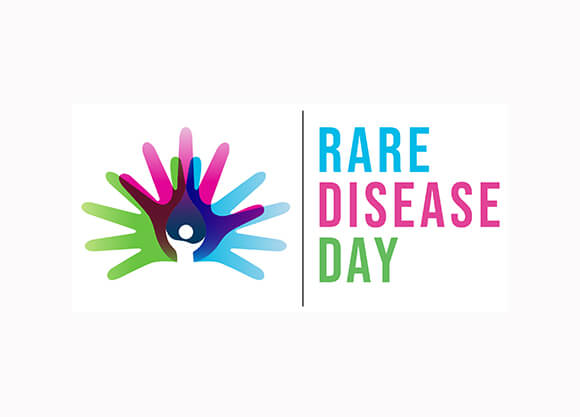
Symposium urges advocacy, advancements for people with rare diseases
February 28, 2022

February 28, 2022

Since its creation in 2008, Rare Disease Day has played a critical role in raising awareness about those who suffer from a myriad of more than 7,000 rare diseases. Collectively, these diseases affect over 400 million people globally, with an estimated economic burden of over 1 trillion dollars.
The symposium is under the direction of Quinnipiac faculty and students engaged in rare disease scholarship, the Pullano Family Endowed Fund for Rare Disease Education and Research, and led by Carolyn Macica, MD, associate professor of medical sciences at Quinnipiac and chair/coordinator and faculty adviser for the program.
“We want to do more than raise awareness of rare disorders. We want to create a pipeline of health care professionals who will adopt a rare disease during their professional clinical years,” said Macica. “This symposium, which Quinnipiac Netter has hosted since 2015, provides an opportunity for patients, family members, clinicians and researchers to share their stories, research and insights into the development of novel therapeutics. Our mission is to promote interprofessional health care education and awareness of and advocacy for the rare disease community.”
Inaugural recipients of the Denise D'Ascenzo Foundation Youth STEM Award, which also provided programming support, were recognized for their engagement and execution of the Science Friday Experiential Genetics Program in collaboration with St. Martin de Porres Academy in New Haven. Open to the public, this year’s event was held remotely due to inclement weather and served as an accredited continuing medical education (CME) activity. The scheduled Beyond the Diagnosis art exhibit, featuring portraits of individuals with rare diseases, will be available for viewing the week of Feb. 28 in the School of Medicine rotunda on the North Haven Campus.
The day began with a welcome from Phillip Boiselle, MD, dean of the School of Medicine, who spoke about the global impact Rare Disease Day has had on raising awareness and meeting the needs of an underserved community.
“Notably, people with rare diseases often face daunting health care, social and financial challenges, ranging from late and missed diagnosis to difficulties navigating access to life-saving treatments and enduring lifelong, complex treatment and management,” said Boiselle. “I am honored to be part of this Netter tradition, and I’m inspired by the many ways this event advances our mission to educate and nurture future generations of diverse, compassionate and humanistic physicians who promote wellness and patient-centered care for all members of our society.”
The keynote address was presented by Thomas Carpenter, MD, director of the Yale Center for X-linked Hypophosphatemia (XLH) and medical director of the Yale Center for Clinical Investigation's Hospital Research Unit. Carpenter shared expertise garnered from a career-long involvement in metabolic bone diseases in children and provided insight into the clinical care characteristics that vary within families and through different stages of life in XLH patients.
The plenary address “Gene Therapy: The Future is Now” focused on a revolution in rare disease treatments through a molecular understanding of how disease pathogenesis has led to unprecedented success in treating some rare disorders. The address featured Jerry R. Mendell, MD, the Dwight E. Peters and Juanita R. Curran Endowed Chair in Pediatric Research at the Abigail Wexner Research Institute at Nationwide Children’s Hospital, and professor of pediatrics and neurology at Nationwide Children’s and The Ohio State University, and Kelly Lehman, a certified family nurse practitioner and regulatory nurse practitioner at the Center for Gene Therapy at Nationwide Children’s Hospital.
During their remarks, Mendell and Lehman shared their experience working on the forefront of gene therapy innovations related to muscular dystrophy and discussed how the field of gene therapy continues to expand with more than 2,000 clinical trials currently taking place today.
In addition to being a catalyst for community building in the fight against rare disorders, Quinnipiac’s Rare Disease Day Symposium is also a learning opportunity for current medical students. An internship with Pfizer’s rare disease department first sparked Daniel Hecht’s interest in advocacy for those living with a rare disease. Now, as a second-year medical student, Hecht was able to turn advocacy into action as one of the student organizers of the symposium.
“This is my second year as a member of the planning committee, and the experience has been invaluable,” said Hecht. “I’ve been able to interact with leading researchers on the forefront of medical advancements, as well as patients and caregivers who courageously share their journey to diagnosis. As a medical student, hearing their stories is a powerful reminder that we must continue to advocate and support the discovery of new therapies for all patients.”
Representing a variety of rare diseases, including cystinosis, mast cell activation syndrome, Duchenne muscular dystrophy and Ehlers-Danlos syndrome, this year’s patient and caregiver panel highlighted the personal viewpoints and experiences of those living with a rare disease. While each story was unique, the panelists shared a common sentiment in urging medical providers to listen to their patients, strive for understanding and continue to advocate for patients whose voices often go unheard.
“Throughout my odyssey, there has been emotional stress, financial worry and increased burden on family and friends. This has impacted my life dramatically,” said panelist Bonnie Sica, who was diagnosed with mast cell activation syndrome 22 years ago. “As a patient, it takes time to realize that just because you’re different, it doesn’t mean your life is less than anyone else’s. While a rare disease changes us, that doesn’t mean it stops us. I’ve lived a full life. It’s a different life than I thought my reality would be, but it’s still a full life."
Quinnipiac Today is your source for what's happening throughout #BobcatNation. Sign up for our weekly email newsletter to be among the first to know about news, events and members of our Bobcat family who are making a positive difference in our world.
Sign Up Now